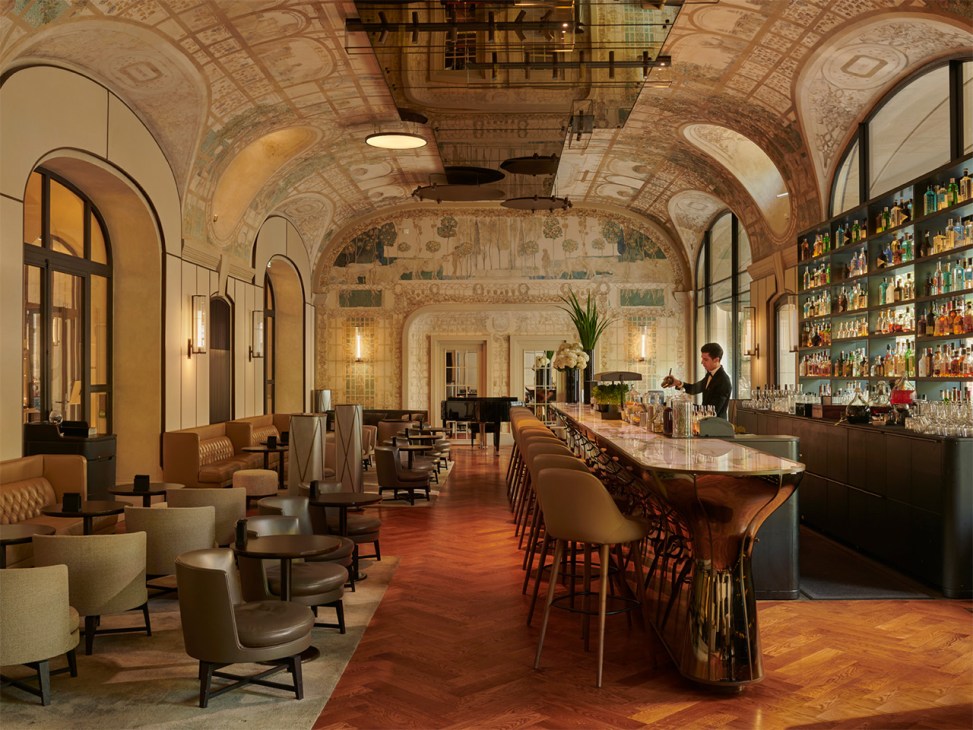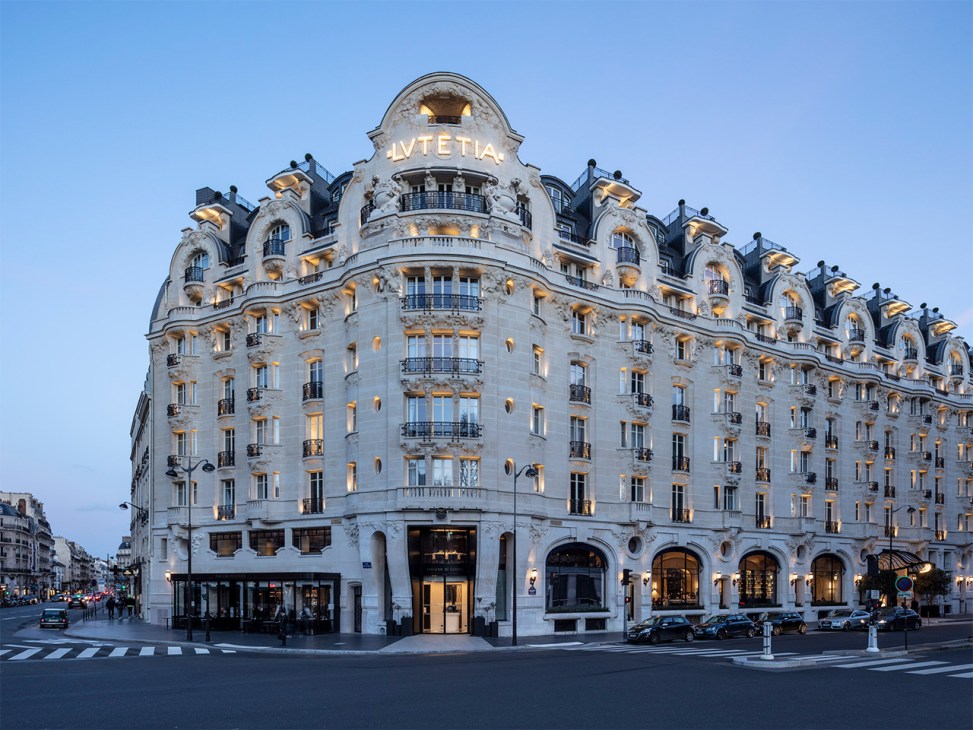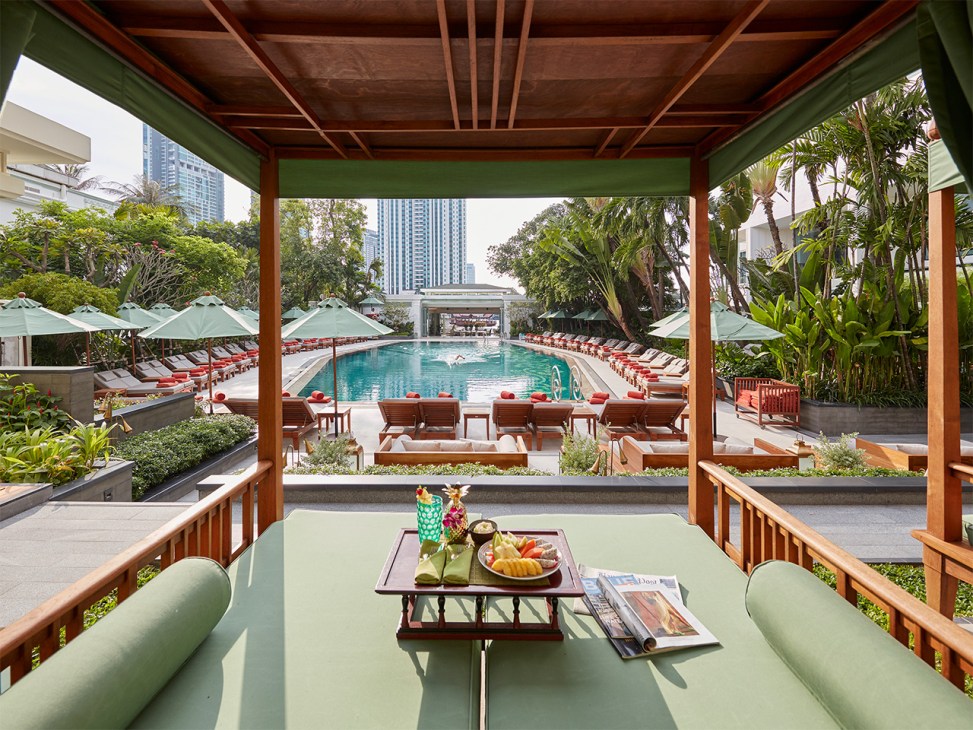Laurent Kleitman on the future of luxury hospitality, Mandarin Oriental’s growth and ‘The White Lotus’ effect
The CEO of Mandarin Oriental Hotel Group explains how the brand drives growth through heritage properties, innovative experiences and strategic pop-culture partnerships, positioning the company for long-term expansion.
Mandarin Oriental Hotel Group has been synonymous with luxury and exceptional hospitality for more than six decades. What began in 1963 with the opening of its flagship hotel in Hong Kong has grown into a portfolio that now spans 44 hotels, 12 residences, and 26 exclusive homes across 27 countries and territories.
The group has built a reputation for elegance, service and innovation, all while remaining proud of its Asian heritage. Today, as Mandarin Oriental writes its next chapter, the hotel group is led by CEO Laurent Kleitman, who has spent 30 years in senior leadership roles with corporations such as Unilever and LVMH.
Most recently, Kleitman served as president and CEO of Parfums Christian Dior, where he guided the brand’s transformation and global expansion across fragrance, beauty and wellness. Monocle’s Simon Bouvier sat down with Laurent in our Paris studio to discuss where the luxury hospitality industry stands today, Mandarin Oriental’s recent purchase of the Hôtel Lutetia in the French capital, and the group’s starring role in the third season of The White Lotus.
This interview has been edited for length and clarity. Listen to the full conversation on ‘The Entrepreneurs’ from Monocle Radio.


Mandarin Oriental recently purchased Hôtel Lutetia in Paris. Where is the hotel positioned in the luxury hospitality landscape, and how does its heritage fit into the group’s business strategy?
Lutetia is not just a hotel; it’s a part of history. We love this because it means that there are many stories to tell, and that people visit not just for a good stay but to be part of that history.
Lutetia – named after the Roman settlement that would eventually become Paris – and its 115-year history is, in fact, relatively short for hospitality. It was started by the Boucicaut family, who also founded Le Bon Marché. They built a hotel in front of the department store to host not only clients but also suppliers coming from neighbouring provinces. From its inception, Lutetia was founded on the idea of creating an experience – something that the hospitality and luxury industries still focus on today.
We are also opening our second hotel in Dubai in just a few weeks, and it is housed in one of the city’s most sustainable high-rise towers. Seeing that we also operate in older properties around the world, such as the Ritz in Madrid, Lutetia in Paris and the Oriental in Bangkok, it’s exciting to continue innovating with new builds. Having these properties in our portfolio is stimulating not only for our team but also for our clients.
With Mandarin Oriental being featured in The White Lotus, how do you see pop-culture partnerships and media visibility influencing the way luxury hotels attract new audiences and maintain cultural relevance?
It’s an interesting and complex topic. We were thrilled to be featured in the third season of The White Lotus – it is an entertaining programme with great storytelling. While large luxury brands play a role in pop culture, the Mandarin Oriental is by no means a mass brand.
We interact with popular culture in various ways, such as displaying art in our properties or through collaborations with artists – sometimes even designing projects with them. In Rivera Maya, Mexico, for instance, we are developing a project with Mexican sculptor Bosco Sodi to integrate art in a meaningful way across the property. This also reflects a broader trend: people travel to connect with culture and community.
We also create our own content. Our original film, Inside the Dream, showcases the behind-the-scenes of Mandarin Oriental across three destinations, and more projects will follow in the coming months. Future series will highlight our facilities, their history and how they blend with the community and environment. This approach delivers the essence of the location, which is ultimately why people travel.

You’ve spoken about moving wellness beyond spas and into holistic experiences, including cuisine, sleep rituals and design. Where do you see the biggest growth opportunities in this trend for luxury hospitality?
There is a lot of crossover between luxury goods and hospitality but I believe delivering experiences rather than physical products is where the industry is heading. After a certain point, buying another handbag or cosmetic item becomes less exciting – but people will always invest in experiences: taking time off, reconnecting with family, exploring destinations and enjoying culinary experiences. Guests spend anywhere from a single meal to several weeks with us, and we are entrusted with their most precious time. This creates countless touchpoints that demand exceptional attention.
Wellbeing is now a key trend. Guests want more than a massage; they want holistic care. Over the years, we’ve developed techniques around relaxation, energy management and sleep. In fact, in the 1990s we launched the first hotel spa in Bangkok, pioneering the idea of wellness in hospitality in the region.
Today, wellbeing extends beyond the spa. We focus on every element of the guest experience: nutrition, room amenities and bedtime rituals. We curate beverages, music, room setup and overall environment to support restoration. This approach is just one example of how we innovate across our portfolio, and it reflects the growth potential for luxury hospitality as experiences define the future of the industry.
How much does today’s uncertain geopolitical context, such as fluctuating tariffs, weigh on your business decisions, and how do you balance short-term challenges with long-term planning?
Humans have always had the desire to travel, to discover, to engage and to relate. I believe that travelling is the most important activity, and that our appetite for discovering the world and the people in it will not fade anytime soon.
We haven’t seen a negative shift in the way our clients are travelling this year compared to last year. To the contrary, we are seeing growth. With many new destinations still needing to be discovered, I’m optimistic about the evolution of the hospitality industry and the future of Mandarin Oriental. There is a lot of work to do but I’m certain that we’ll double the size of the company in the next 10 years – and we’ll be here for the decades to come.
Listen to the full conversation with Kleitman on The Entrepreneurs below, on Apple Podcasts or Spotify.
You might also like:
How high-end technology misses the point in luxury hospitality
Le Bristol’s MD on how the luxury hotel has stayed booked and buzzing for 100 years



